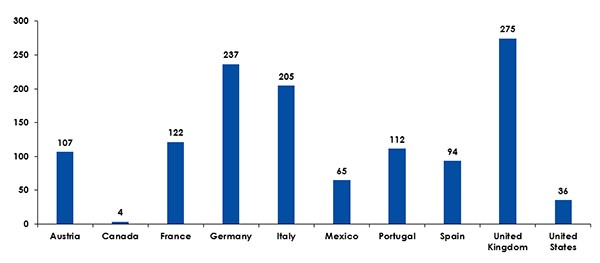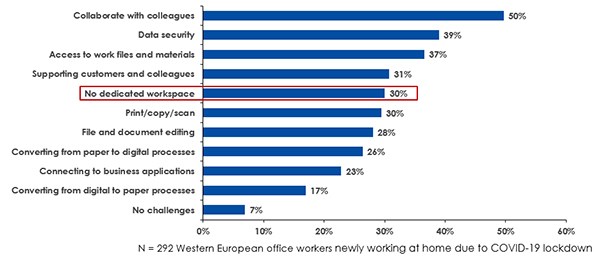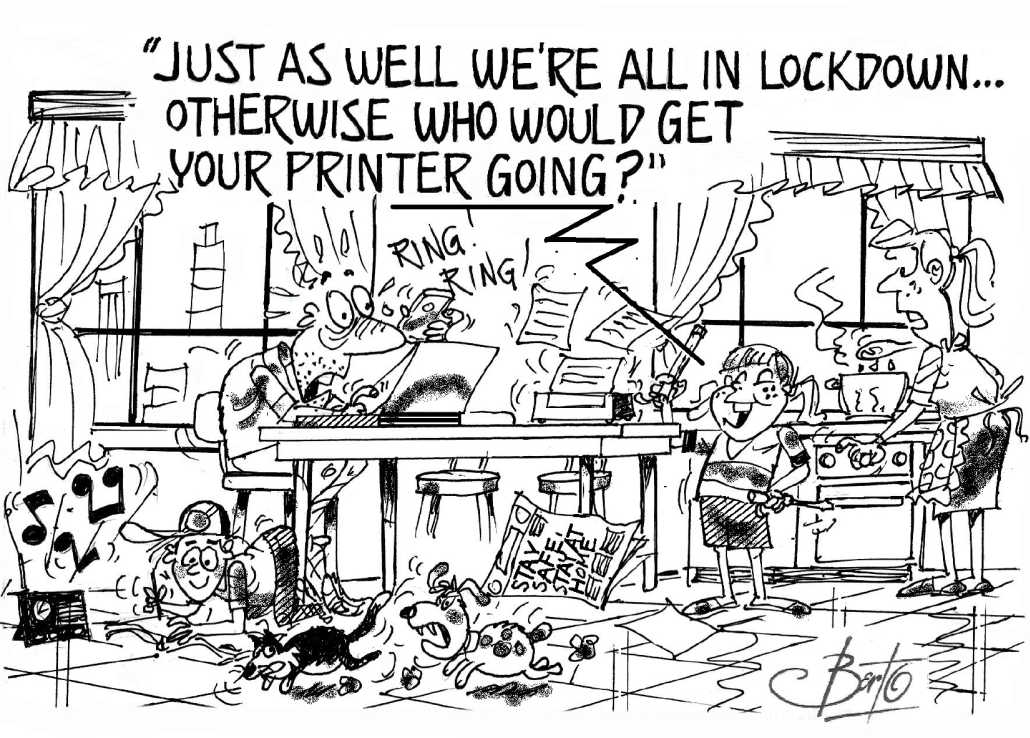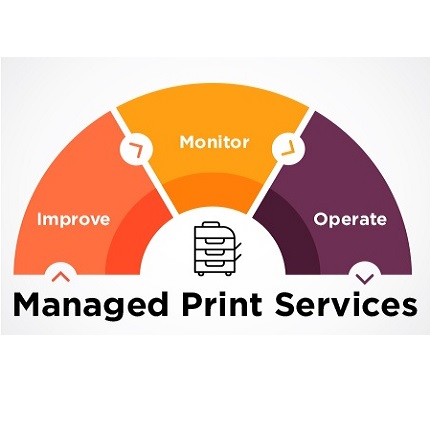Not Enough Space for European Home Workers
Not Enough Space for European Home Workers
 Research conducted by Keypoint Intelligence reveals a significant obstacle to working from home in Western Europe is not having enough space.
Research conducted by Keypoint Intelligence reveals a significant obstacle to working from home in Western Europe is not having enough space.
 According to Consulting Editor Christine Dunne (pictured), “about 30% of people in Germany and the United Kingdom who are now working at home (because of the pandemic) consider this a challenge compared to just 23% of their US counterparts.”
According to Consulting Editor Christine Dunne (pictured), “about 30% of people in Germany and the United Kingdom who are now working at home (because of the pandemic) consider this a challenge compared to just 23% of their US counterparts.”
Dunne says this makes sense because data from the World Bank reveals the population in western Europe is denser than that of the USA. “For instance, Germany and the United Kingdom have 237 and 275 people per square kilometer of land area (respectively), compared to just 36 people in the United States.”

Source: The World Bank
The Western European survey was conducted with a sample of 292 new COVID-19 work-from-home-office workers and an additional sample of 70 people who worked from home prior to the pandemic for a total of 362 person sample size.
Dunne suggests that not having a dedicated workspace could lead to lower productivity, privacy laws violations and also embarrassing situations due to the close proximity to family members and personal spaces. Researchers at Keypoint Intelligence found employees between 35 and 49 years old were the most likely to fall into this category with the possibility of children taking over their “offices.”
Other obstacles to working from home are presented as follows:

Source: The Western European Future Office Survey: Working from Home During COVID-19
(Keypoint Intelligence, 2020)
According to Dunne, a conclusion that can be taken from these results is that European at-home workers may be particularly interested in printers or MFPs with a lean footprint. She proposes this is of immense significance for print manufacturers and vendors. She adds, “These kinds of devices may also offer benefits from a sustainability and energy sufficiency standpoint—something that Europeans are really seeking in their print environment.”
“It may also be helpful for these devices to be portable in the event that the individual’s workspace changes based on the situation. With the newest survey suggesting that 87% of printers were acquired by the at-home worker (in some cases they were expensed back to the company), it means that vendors traditionally targeting IT decision-makers must expand their marketing communications to employees themselves who clearly have different needs than the company owners.
The need for space in Western European home offices is just one of the many findings in the new survey entitled The Future Office Survey: Working from Home During COVID-19. The 85 questions explore remote working and print/document opportunities from a wide variety of angles, including:
- Remote work printing purchases and behavior: This includes the primary work from the home device, top features considered for the device, change in workprint volume, breakdown of optional vs. required printing, and most printed document types.
- Attitudes toward working from home: Work from home challenges, the impact of remote work on productivity, and how the right technology could impact productivity are just a few of the areas explored.
- Changes in personal (non-work printing) printing during lockdown: This covers the change in personal printing, the change in household printing, the impact of homeschooling on print, and the most printed document types for personal purposes.
- Remote work scanning behaviors: This includes COVID-19’s impact on the move to business process digitization within companies, how scanning behavior has changed, and the extent to which scanning with smartphones is practiced.
- Other technology purchases and behavior: Areas explored include the devices/services that have been acquired during lockdown, how the items have been paid for and the cost for the technology.
Print vendors with an opinion on these findings (or this topic) are invited to connect via email at christine.dunne@keypointintelligence.com with their perspectives.
Access to this research can be made by emailing sales@keypointintelligence.com.
RT Media’s Berto has the last laugh at work-from-home-office workers:
Related:
Comments:
Please add your comments below about this story, “Not Enough Space for European Home Workers”





Leave a Comment
Want to join the discussion?Feel free to contribute!